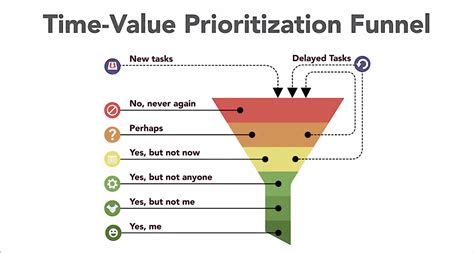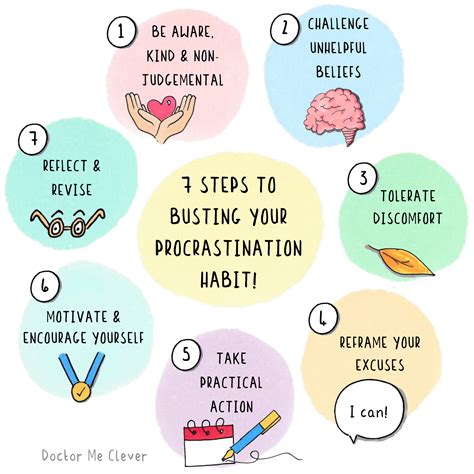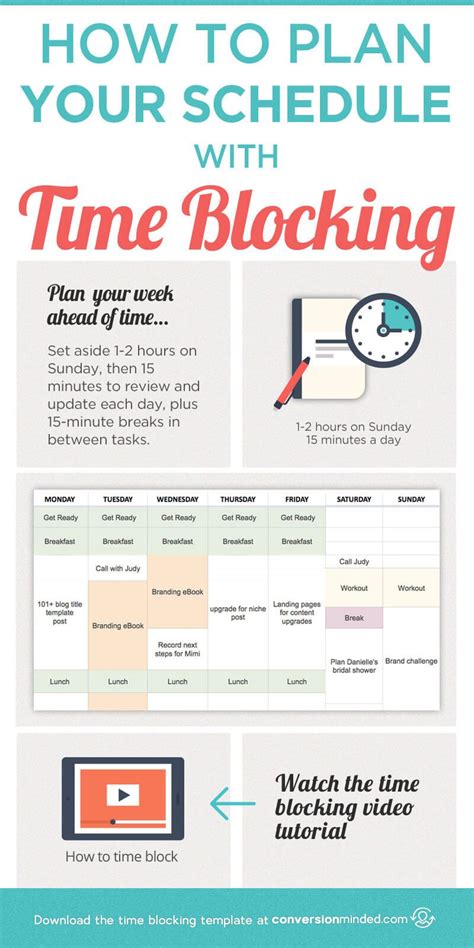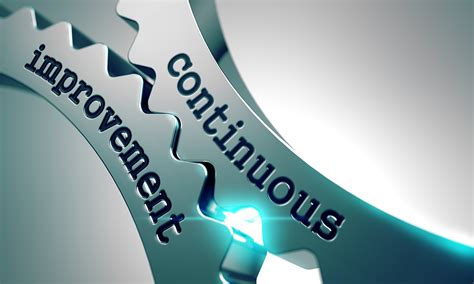In today's fast-paced world, the ability to manage time wisely and increase productivity has become more crucial than ever. Finding effective strategies to optimize your work routine and make the most out of each day can significantly impact your success and overall well-being.
Efficient time utilization goes beyond simply organizing your schedule; it involves creating a harmonious balance between responsibilities, priorities, and personal goals. By honing your time management skills, you can unlock your full potential and achieve remarkable results in both professional and personal spheres.
Discovering unique approaches to handle tasks, eliminating time-wasting habits, and maximizing productivity requires a proactive mindset. With the right mindset, you can harness the power of efficient time management and boost your performance to new heights.
The Significance of Prioritization in Effective Time Utilization

One crucial element in maximizing productivity and optimizing time usage is prioritization. This essential aspect allows individuals to allocate appropriate time and effort to tasks that hold the most significance. Prioritization involves identifying and categorizing activities based on their importance and urgency, enabling individuals to focus on completing tasks that will yield the most substantial results.
By implementing a systematic approach to prioritization, individuals can effectively manage their time, maintain focus on key objectives, and enhance overall productivity. Prioritizing tasks aids in identifying critical deadlines or milestones that must be met, ensuring that crucial activities are given adequate attention and completed in a timely manner.
One effective technique to prioritize tasks is by utilizing various classification systems. For instance, the Eisenhower Matrix, also known as the Urgent-Important Matrix, is a popular model that arranges tasks into four categories: important and urgent, important but not urgent, urgent but not important, and neither important nor urgent. This approach assists in promptly identifying priorities and distinguishing between tasks that demand immediate attention and those that can be deferred or eliminated.
- Important and Urgent: Tasks falling into this category require immediate attention as they have a significant impact on achieving personal or professional objectives. These tasks should be completed promptly without delays.
- Important but Not Urgent: Activities in this category contribute to long-term goals and require planning and consistent effort. Allocating regular time for these tasks ensures progress and prevents them from becoming urgent in the future.
- Urgent but Not Important: These tasks might seem urgent due to various factors such as interruptions or minor deadlines imposed by others. However, they do not align with one's overall objectives and must be carefully evaluated to avoid time wastage.
- Neither Important nor Urgent: Tasks in this category usually hold little to no value and add minimal or no benefit to personal or professional growth. It is advisable to eliminate or delegate such tasks to free up time for more significant activities.
Mastering the art of prioritization empowers individuals to make efficient use of their time, ensure that critical tasks are given appropriate attention, boost productivity, and ultimately achieve desired outcomes. By accurately assessing the importance and urgency of tasks, individuals can enhance their time management skills and experience a profound impact on their overall effectiveness.
Setting Clear and Realistic Goals to Enhance Efficiency
When it comes to maximizing productivity, one of the key strategies is setting clear and realistic goals. These goals serve as a roadmap to guide us towards success, keeping us focused and motivated. By defining specific targets and objectives, we can effectively manage our time, prioritize tasks, and achieve desired outcomes. In this section, we explore the importance of establishing clear and attainable goals, and how they can contribute to increased productivity.
Strategies to Overcome Procrastination

Are you constantly finding yourself putting off tasks, delaying important deadlines, and struggling to make progress? Overcoming procrastination is crucial for achieving optimal productivity and effective time management. In this section, we will explore powerful strategies to eliminate procrastination and boost your efficiency.
| 1. Prioritize Tasks | Place tasks in order of importance, focusing on the most critical ones first. By prioritizing, you can better allocate your time and energy, ensuring that you tackle the most essential tasks without delay. |
| 2. Set Achievable Goals | Break down larger projects into smaller, manageable goals. By setting achievable targets, you'll create a sense of progress and accomplishment, motivating you to take immediate action rather than putting things off. |
| 3. Create a Structured Schedule | Establishing a well-structured schedule helps in keeping you focused and disciplined. Allocate specific time slots for different tasks and ensure to follow the schedule strictly to avoid the temptation of procrastination. |
| 4. Utilize Time-Blocking Techniques | Implement time-blocking techniques to allocate dedicated periods for specific tasks. This approach helps in managing your time efficiently and assists in overcoming the tendency to postpone important duties. |
| 5. Minimize Distractions | Identify distractions in your environment and take necessary steps to minimize them. Create a conducive workspace free from unnecessary interruptions, such as turning off notifications on your phone or blocking distracting websites. |
| 6. Find Motivation | Discover what drives you and use it as a motivation tool to overcome procrastination. Whether it's visualizing the rewards of completing a task or seeking inspiration from successful individuals, finding motivation will help you stay on track. |
| 7. Break Tasks into Smaller Steps | Large tasks often lead to procrastination due to their overwhelming nature. Break them down into smaller, more manageable steps, enabling you to focus on one task at a time and making the overall process less intimidating. |
| 8. Embrace a Positive Mindset | Adopting a positive mindset is crucial when combating procrastination. Replace negative thoughts and self-doubt with positive affirmations and self-belief, empowering yourself to take action and conquer the tendency to procrastinate. |
| 9. Set Deadlines and Stick to Them | Establish clear deadlines for your tasks and hold yourself accountable for meeting them. Use reminders and timers to stay on track, ensuring that you complete your assignments within the designated timeframes. |
| 10. Seek Support and Accountability | Engage with like-minded individuals or join groups that provide support and accountability. Sharing your goals and progress with others creates a sense of responsibility, making it harder to procrastinate when you know others are relying on you. |
By employing these effective strategies to eliminate procrastination, you can unlock your true potential, accomplish more in less time, and experience a noticeable boost in productivity and efficiency.
Maximizing Focus and Overcoming Distractions
In today's fast-paced world, staying focused and avoiding distractions is crucial for optimizing productivity and achieving desired results. However, the ever-increasing demands of modern life make it challenging to maintain concentration and concentrate on tasks at hand. This section will explore effective strategies to manage distractions and enhance focus, allowing individuals to reach their full potential.
1. Prioritize tasks: Begin by identifying the most important tasks that require immediate attention. Creating a prioritized to-do list helps minimize distractions by ensuring that essential tasks are completed first, reducing the risk of feeling overwhelmed and scattered.
2. Eliminate unnecessary interruptions: Evaluate the surroundings and identify sources of unnecessary distractions. This could include disabling notifications on electronic devices or establishing designated periods for checking emails and messages. By eliminating these interruptions, individuals can create a focused environment conducive to productivity.
3. Create a dedicated workspace: Having a designated area solely for work or study can significantly improve focus. This space should be organized, free from clutter, and tailored to individual preferences. Additionally, personalizing the workspace with motivational quotes or calming elements can further enhance focus and mental clarity.
4. Practice mindful techniques: Incorporating mindfulness into daily routines can help manage distractions and improve focus. Techniques such as deep breathing exercises, meditation, or practicing mindfulness during breaks can promote mental clarity and reduce the impact of external distractions.
5. Break tasks into manageable segments: Large projects or tasks can be overwhelming and lead to reduced focus. Breaking them down into smaller, more manageable segments allows individuals to concentrate on one aspect at a time, maintaining engagement and motivation throughout the process.
6. Avoid multitasking: While multitasking may seem efficient, it often leads to decreased productivity and diminished focus. Instead, focus on one task at a time, devoting undivided attention to each before moving on to the next. This approach ensures higher quality results and minimizes distractions caused by shifting between multiple tasks simultaneously.
7. Recognize and limit internal distractions: Inner thoughts and emotions can prove to be significant distractions. Negative self-talk, stress, or feelings of overwhelm can hamper focus and hinder productivity. Practicing self-awareness and implementing strategies such as journaling, practicing gratitude, or engaging in activities that promote relaxation can help manage internal distractions effectively.
By following these strategies and consciously implementing techniques to manage distractions and enhance focus, individuals can make the most of their time and achieve their goals efficiently.
Efficient Techniques for Effective Work Schedule through Time Blocking

In order to optimize productivity and make the most of your work hours, it is crucial to implement efficient time blocking techniques. By strategically dividing your day into distinct blocks of time dedicated to specific tasks or activities, you can effectively manage your workload and ensure that important tasks are given adequate attention.
Time blocking allows you to prioritize your tasks, allocate appropriate time for each task, and minimize distractions. By creating a structured schedule, you can enhance focus, improve efficiency, and achieve better work-life balance.
- Task Prioritization: Start by identifying and categorizing your tasks based on urgency and importance, ensuring that your top priorities are given sufficient time allocation.
- Dedicated Focus Time: Allocate specific blocks of time for tasks that require deep concentration and focus. This allows for uninterrupted work and increases productivity.
- Batch Processing: Group similar tasks together and dedicate specific time blocks for their completion. This minimizes context switching and enhances efficiency.
- Breaks and Rest: Incorporate regular breaks into your schedule to recharge and maintain high levels of productivity. Short breaks can help prevent burnout and improve overall mental clarity.
- Flexibility for Unforeseen Tasks: Allocate some flexible time slots to accommodate unplanned or urgent tasks that may arise throughout the day.
- Limiting Distractions: During allocated work blocks, minimize distractions such as notifications, emails, or unnecessary interruptions to maintain focus and optimize productivity.
- Tracking and Analyzing Time: Regularly review and analyze how you are spending your time to identify areas of improvement and make necessary adjustments to your schedule.
By implementing these efficient time blocking techniques, you can maximize your work schedule, increase productivity, and achieve better work-life balance. Prioritizing tasks, dedicating focused time, and incorporating breaks can help you optimize your workflow and enhance overall efficiency.
Maximizing Efficiency through Effective Delegation
In order to enhance productivity and achieve optimal results, it is crucial to recognize the significance of delegation. Employing the power of assigning tasks to capable team members not only assists in balancing workloads, but also allows individuals to focus on core responsibilities.
Effective delegation involves the art of entrusting specific duties to qualified individuals who possess the necessary skills and expertise. By transferring tasks to others, you can leverage their strengths, which in turn leads to enhanced performance and overall team efficiency.
- Identify strengths: Begin by identifying the unique talents and capabilities of your team members. Evaluate their skills, knowledge, and experiences to ascertain the most suitable tasks for delegation.
- Clearly define expectations: When delegating tasks, it is essential to clearly communicate your expectations. Provide a comprehensive brief and establish specific goals and outcomes to ensure everyone is aligned on the desired results.
- Empower and trust: Delegation requires trust and empowerment. Equip your team members with the necessary resources, authority, and autonomy to successfully carry out their delegated tasks. This not only fosters a sense of ownership but also boosts motivation and accountability.
- Regular check-ins: While entrusting tasks to others, it is important to maintain open lines of communication. Schedule regular check-ins to monitor progress, address any challenges or concerns, and provide necessary guidance and support.
- Feedback and recognition: Recognize and acknowledge the efforts and achievements of your team members. Offer constructive feedback to improve their performance and provide opportunities for growth and development.
By embracing effective delegation strategies, you can optimize productivity, streamline workflows, and ensure the successful accomplishment of tasks and goals. Remember, effective delegation is not only about redistributing work, but also about empowering individuals and fostering a collaborative and efficient work environment.
Harnessing Technology and Tools for Efficient Time Utilization

In today's fast-paced world, the integration of technology and tools has become essential for optimizing time utilization and improving overall productivity. By leveraging technological advancements and utilizing various tools, individuals can streamline their tasks, enhance organization, and accomplish more in less time. This section explores the benefits and strategies for efficiently employing technology and tools in time management practices.
One significant advantage of incorporating technology and tools in time management is the ability to automate repetitive tasks. By automating routine activities, individuals can save valuable time and redirect their focus towards more critical tasks. With the help of efficient software or applications, tasks such as email filtering, appointment scheduling, and document organization can be streamlined, allowing individuals to allocate their energy and attention towards more complex and essential activities.
Additionally, technology offers a vast array of collaboration tools that enable individuals to work seamlessly in teams, regardless of geographical barriers. These tools facilitate effective communication, task allocation, and progress tracking, ensuring that team members stay connected and informed. Through real-time collaboration platforms, individuals can overcome the limitations of physical presence and engage in productive discussions, brainstorming sessions, and decision-making processes, collectively contributing to enhanced productivity and time management.
Furthermore, the integration of technology aids in efficient data management, thereby reducing time wastage searching for information. With the use of robust search engines, cloud storage systems, and data organization tools, individuals can quickly retrieve necessary information and eliminate the need for extensive manual searching. This organized approach allows professionals to promptly access relevant data, prioritize tasks effectively, and make well-informed decisions, ultimately leading to increased productivity and optimized time management.
In conclusion, the utilization of technology and tools plays a vital role in effective time management practices. By automating repetitive tasks, fostering collaboration, and facilitating efficient data management, individuals can enhance productivity, reduce time wastage, and achieve their goals more efficiently. Embracing the potential of technology not only enhances time utilization but also empowers individuals to accomplish more while maintaining a balanced and productive lifestyle.
The Importance of Self-Care in Enhancing Time Utilization and Boosting Efficiency
In the pursuit of optimizing productivity and efficiently managing one's time, it is crucial to acknowledge the significant role that self-care plays. While "self-care" might be associated with practices such as relaxation and indulgence, it encompasses much more. It involves prioritizing physical, mental, and emotional well-being to ensure a sustainable and effective approach to time management.
Self-care promotes a balanced lifestyle that allows individuals to navigate their time more adeptly. By taking intentional breaks and nurturing oneself, it becomes possible to sustain focus, motivation, and energy levels. Recognizing the need for rest, exercise, and healthy eating habits improves overall productivity. Attending to one's physical and mental health not only enhances the quality of work but also enables individuals to better cope with stress and obligations.
Additionally, self-care contributes to cultivating a positive mindset and reducing burnout, which are essential aspects of effective time management. Engaging in activities that bring joy and fulfillment, whether it be reading, practicing a hobby, or spending time with loved ones, replenishes energy levels and fosters a more efficient use of time. Prioritizing self-care ensures that time is not solely devoted to work but includes activities that rejuvenate and provide a sense of well-being.
A structured self-care plan can also aid in minimizing distractions and improving time utilization. By setting boundaries, implementing time off, and practicing self-discipline, individuals can create a framework that allows them to focus on important tasks and avoid unproductive behaviors. Regularly reassessing priorities and making self-care a non-negotiable part of one's routine establishes a foundation for long-term success and increased productivity.
- Implementing regular exercise routines to boost energy levels and mental clarity
- Establishing boundaries to limit distractions and enhance concentration
- Engaging in mindfulness practices to reduce stress and promote mental well-being
- Taking breaks to rest and recharge, preventing burnout
- Prioritizing healthy eating habits to nourish the body and sustain focus
In conclusion, self-care should be regarded as a fundamental component of effective time management and increased productivity. By prioritizing personal well-being, individuals can cultivate a positive mindset, enhance energy levels, and minimize distractions, resulting in optimal time utilization and improved overall efficiency.
Continuous Improvement and Adaptability for Sustained Productivity

In the pursuit of optimal performance and productivity, it is essential to not only focus on immediate strategies but also to cultivate a mindset of continuous improvement and adaptability. The ability to consistently refine and enhance our approaches to work and life contributes to long-term productivity gains and overall success.
Growth mindset: Developing a growth mindset is a fundamental aspect of continuous improvement. By embracing challenges, viewing failures as learning opportunities, and persistently seeking development, we can unlock our potential and further enhance our productivity in the long run.
Self-reflection and evaluation: Regularly evaluating our progress and reflecting on our accomplishments and areas for improvement is critical for long-term productivity. By analyzing our strengths and weaknesses, we can identify areas where adjustments can be made and create targeted plans to enhance our efficiency.
Adapting to change: The ability to adapt to change is key in this fast-paced world. By staying flexible and open-minded, we can effectively respond to unexpected challenges and opportunities, and adjust our strategies accordingly. Being adaptable allows us to maintain our productivity levels while embracing new methods and tools that may arise.
Prioritization and focus: Efficient productivity often requires prioritization and focus. By clearly defining goals and tasks, we can strategically allocate our time and energy, ensuring that we concentrate on the most important and impactful activities. Prioritization enables us to make progress towards our objectives while avoiding unnecessary distractions.
Lifelong learning: Embracing a commitment to lifelong learning is crucial for sustained productivity. Actively seeking knowledge, acquiring new skills, and staying updated with current trends and practices within our field ensures that we remain relevant and adaptable in an ever-evolving world. Continuous learning expands our capabilities and enhances our ability to handle complex tasks efficiently.
Collaboration and delegation: Recognizing the power of collaboration and delegation is vital for long-term productivity. By leveraging the strengths and expertise of others, we can optimize our workflow and allocate tasks more effectively. Delegation allows us to focus on high-priority activities while fostering teamwork and shared success.
Consistency and habit-building: Cultivating consistency and developing productive habits significantly contribute to sustained productivity. By establishing routines and rituals, we can create a conducive environment for focus and progress. Consistency reinforces positive behaviors and eliminates the need for continuous decision-making, saving valuable time and energy.
By consistently striving for improvement and adapting to the ever-changing demands and opportunities, we can not only boost our productivity in the short term but also cultivate a sustainable approach that supports long-term success and personal growth.
FAQ
What are some effective time management techniques?
Some effective time management techniques include creating a to-do list, prioritizing tasks, delegating responsibilities, breaking tasks into smaller chunks, and limiting distractions.
How can I improve my productivity?
You can improve your productivity by setting clear goals, maintaining a schedule, avoiding multitasking, taking regular breaks, keeping a clean and organized workspace, and using productivity tools or apps.
What are the consequences of poor time management?
Poor time management can lead to increased stress, missed deadlines, lower productivity, poor quality work, and a lack of work-life balance.
How can I effectively prioritize my tasks?
You can effectively prioritize your tasks by determining their importance and urgency, using techniques like the Eisenhower Matrix or ABC analysis, considering deadlines, and consulting with colleagues or supervisors if needed.
How can I avoid getting overwhelmed with too many tasks?
You can avoid getting overwhelmed with too many tasks by learning to say no, delegating tasks to others, breaking tasks into smaller manageable parts, focusing on one task at a time, and seeking support or assistance when needed.
How can I improve my time management skills?
To improve your time management skills, you can start by setting clear goals and priorities. Create a daily or weekly schedule, and allocate specific time slots for different activities. Avoid multitasking and focus on one task at a time. Break down large tasks into smaller, more manageable ones. Learn to say no to non-essential tasks and delegate when possible. Regularly evaluate your progress and make adjustments to your schedule if needed.
What are some effective tips for boosting productivity?
There are several effective tips for boosting productivity. Firstly, start your day with a clear plan and identify your most important tasks. Prioritize them and work on them during your peak energy times. Minimize distractions by turning off notifications and creating a conducive work environment. Take regular breaks to rejuvenate your mind and body. Use productivity tools and techniques such as the Pomodoro Technique or time blocking. Finally, make sure to maintain a healthy work-life balance and take care of your physical and mental well-being.



